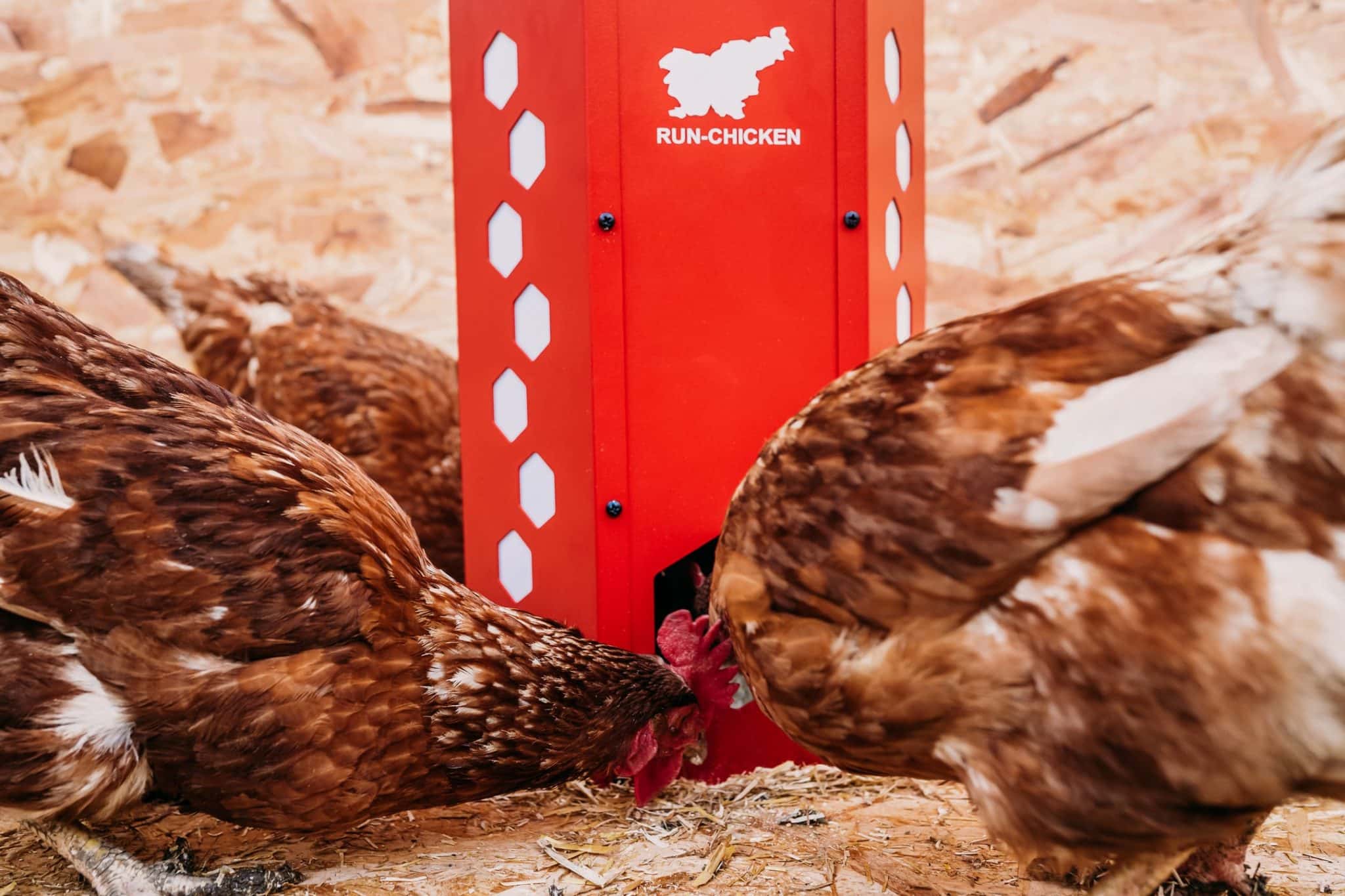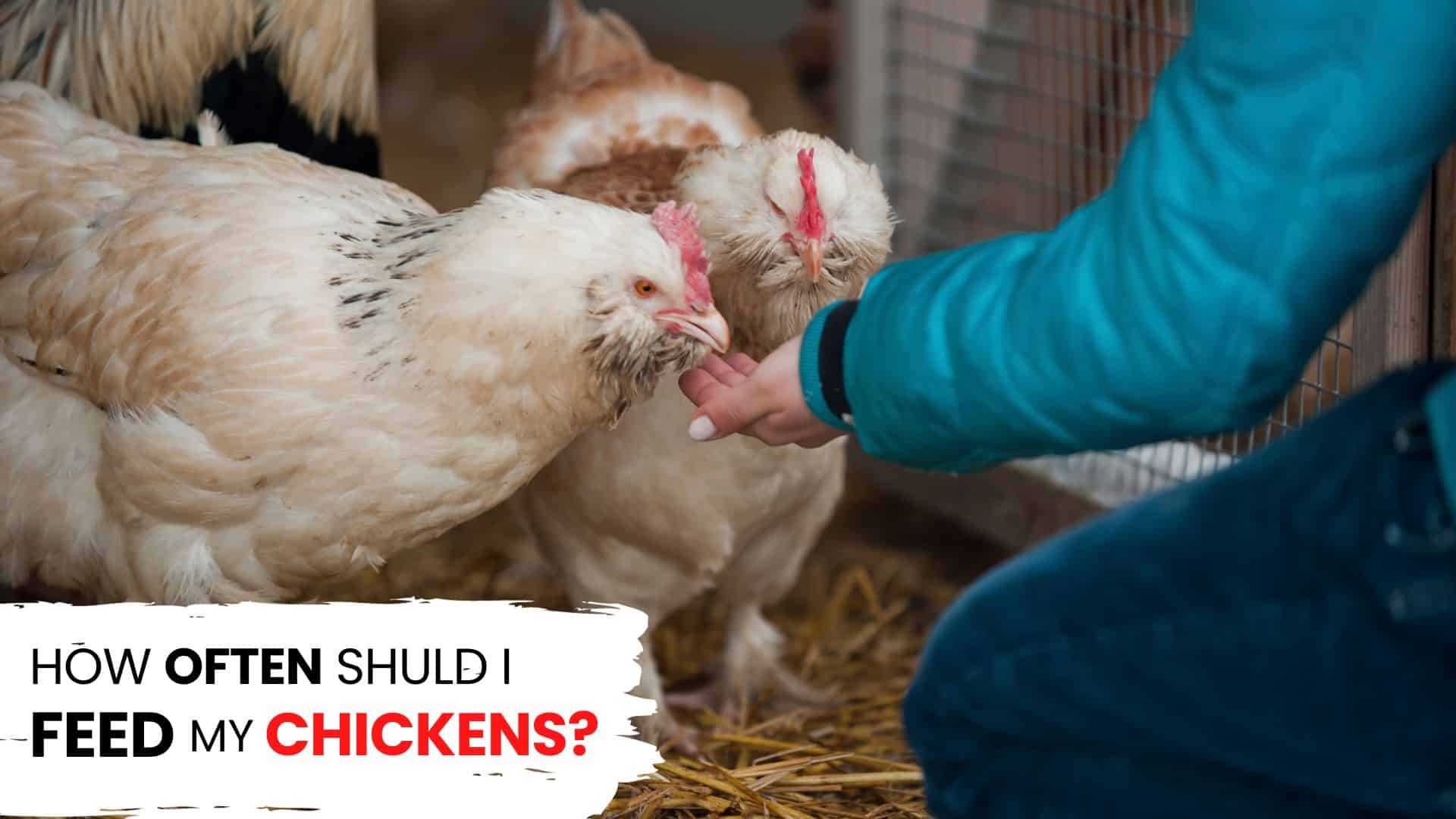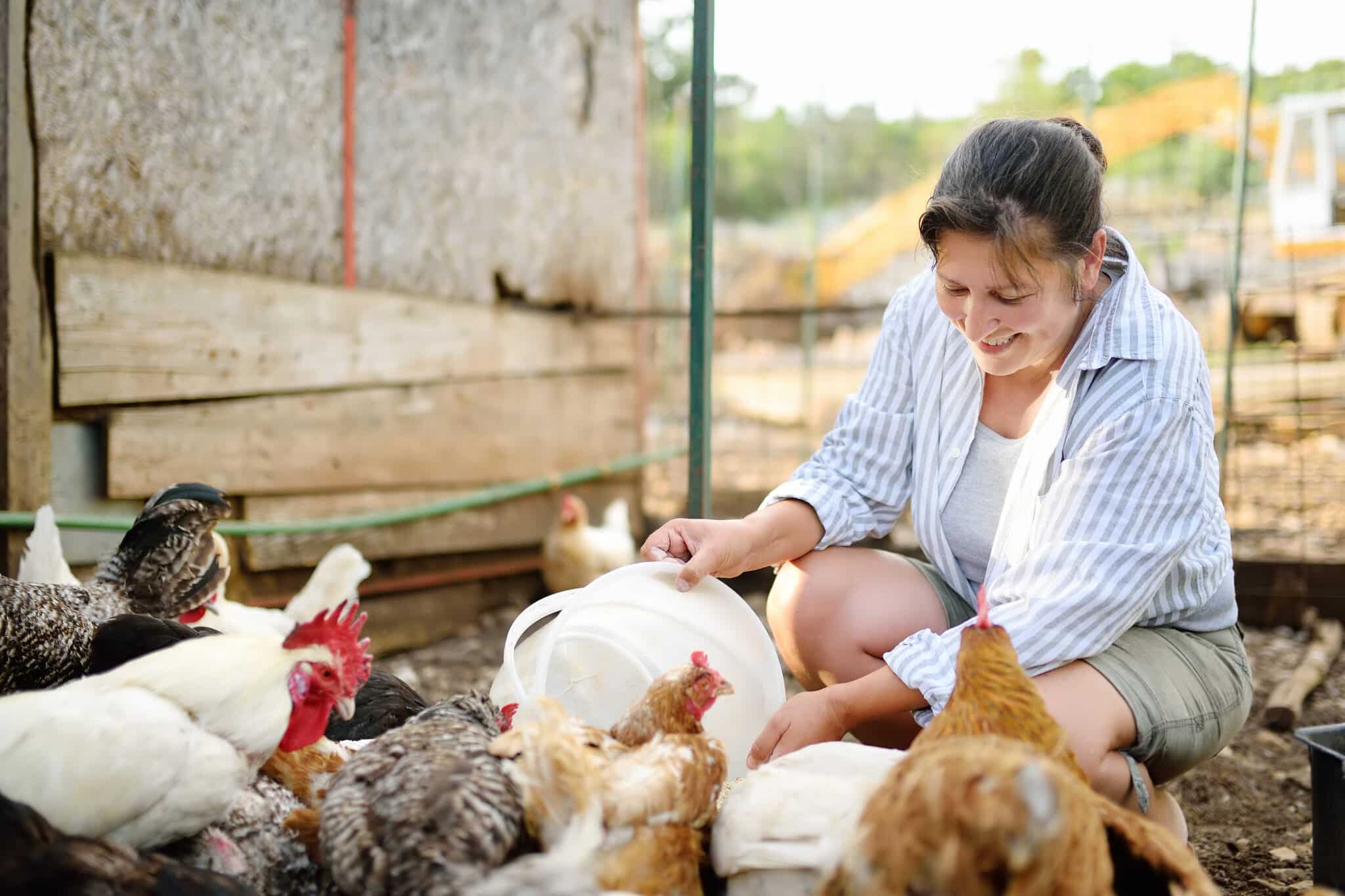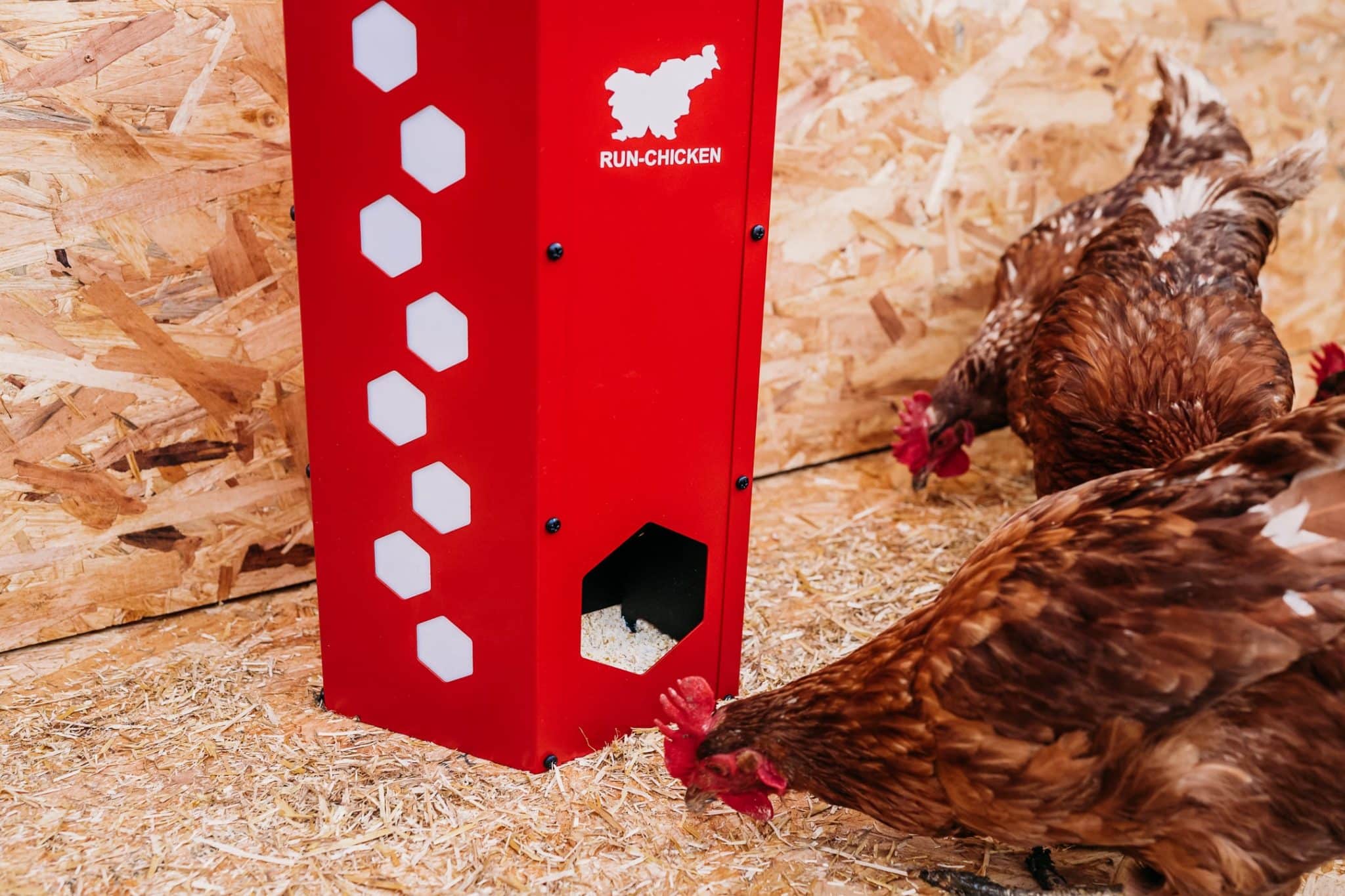If you’re new to the chicken world, you might wonder, “How often should I feed my chickens?” This question is a big deal because it’s all about making sure your feathered pals are happy and healthy.
Proper chicken feeding is essential for their health, productivity, and well-being. A balanced diet provides chickens with the nutrients they need to grow, lay eggs, and produce meat. The ideal feeding frequency depends on a number of factors, including the age and growth stage of the chickens, their breed, their purpose, and the environmental conditions.
What are Chicken’s Dietary Needs?
Chickens have specific nutritional requirements for macronutrients (proteins, carbohydrates, and fats) and micronutrients (vitamins and minerals). The specific amounts of each nutrient needed vary depending on the chicken’s age, growth stage, breed, purpose, and environment.
What Factors Influence Their Dietary Needs?
Age and growth stage:
Chicks need a high-protein diet to support their rapid growth. Young chickens need a balanced diet that supports both growth and maintenance. Adult chickens need a diet that helps them maintain optimal body condition and egg production or meat production.
Breed differences:
Some breeds of chickens are more active than others and may require more calories. Other breeds may have specific dietary needs due to genetic factors.
Purpose:
Chickens that are raised for egg-laying or meat production will have different dietary needs than chickens that are kept as pets.
Environmental factors:
Chickens living in cold climates or free-ranging chickens may have higher energy needs than chickens living in warm climates or confined chickens.

Daily Feeding Frequency
Feeding frequency for chicks (0-8 weeks)
Chicks need to be fed frequently to support their rapid growth. A recommended daily schedule is to feed chicks four times a day: in the morning, afternoon, evening, and before bed.
Feeding frequency for young chickens (8-20 weeks)
As young chickens mature, they can be transitioned to fewer feedings per day. A recommended daily schedule is to feed young chickens twice a day: in the morning and evening.
Feeding frequency for adult chickens (20+ weeks)
Adult chickens can be fed once or twice a day, depending on their individual needs. If you are unsure how much to feed your adult chickens, it is best to start with a smaller amount and increase it gradually until you find the amount that keeps them at a healthy weight.
Run-Chicken Automatic Door: Your Poultry’s Best Friend
To ensure your chickens receive their daily nourishment, it’s crucial to establish an appropriate feeding frequency based on their age and needs. But what if you could simplify this process and ensure your flock gets fed even when you’re not around? That’s where the Run-Chicken Automatic Door comes into play.
The Run-Chicken Automatic Door is a game-changer for chicken keepers. This battery-powered marvel is not only smartphone accessible, making it convenient to manage remotely, but it’s also incredibly durable and safe for your feathered friends.
Seasonal Considerations
Winter feeding frequency
Chickens have higher energy needs in the winter to stay warm. You may need to increase the amount of feed you give your chickens during the winter months. You can also offer them warm treats, such as cooked oatmeal or scrambled eggs.
Summer feeding frequency
Chickens are more susceptible to heat stress in the summer. It is important to monitor your chickens closely during hot weather and adjust their feeding schedule accordingly. You may need to feed them smaller meals more often throughout the day. You should also make sure they have access to plenty of fresh water.
Monitoring and Observations
It is important to monitor your chickens closely to ensure that they are getting the right amount of feed. Signs of overfeeding include obesity, lethargy, and decreased egg production. Signs of underfeeding include weight loss, poor feather condition, and decreased egg production.
If you notice any of these signs, adjust the feeding frequency or amount of feed accordingly. You may also want to consult with a veterinarian or poultry expert to get personalized advice for your flock.
Types of Chicken Feed
There are many different types of chicken feed available, including commercial feeds, homemade or supplemental feeds, and specialized feeds for different life stages. It is important to choose a feed that is appropriate for the age, breed, and purpose of your chickens.
Commercial chicken feeds
Commercial chicken feeds are formulated to provide chickens with the nutrients they need for optimal health and productivity. They are available in a variety of forms, including pellets, crumbles, and mash.
Homemade or supplemental feeds
Some chicken owners choose to feed their chickens homemade or supplemental feeds. These feeds can be made from a variety of ingredients, such as grains, vegetables, and fruits. It is important to do your research to make sure that homemade feeds are nutritionally balanced.
Specialized feeds for different life stages
There are also specialized feeds available for different life stages of chickens. For example, there are feeds specifically for chicks, young chickens, laying hens, and meat birds.
Importance of Balanced Nutrition
It is important to provide your chickens with a balanced diet that contains all of the nutrients they need. A balanced diet will help your chickens stay healthy, productive, and happy.
Treats and Snacks
It is okay to give your chickens treats and snacks occasionally. However, it is important to limit the amount of treats you give them and to choose healthy treats, such as fruits, vegetables, and insects. Excessive treats can lead to obesity and other health problems.
Here are some examples of healthy treats and snacks for chickens:
- Fresh fruits and vegetables, such as berries, apples, carrots, and leafy greens
- Cooked rice or pasta
- Hard-boiled eggs
- Yogurt
- Mealworms
- Crickets
Avoid giving your chickens processed foods, sugary foods, or spicy foods. These foods can be harmful to their health.
Water Availability
Water is essential for chickens, and they should have access to fresh water at all times. Make sure to clean their waterer daily and refill it with fresh water.
Correlation between feeding and drinking frequency
Chickens tend to drink more water when they are eating. Therefore, it is important to make sure that they have access to fresh water whenever you are feeding them.
Feeding Practices for Special Cases
Broody hens and molting chickens: Broody hens and molting chickens may need to be fed more frequently than usual. Broody hens are sitting on their eggs and not getting much exercise, so they need more energy. Molting chickens are growing new feathers and need extra protein.
Dual-purpose or heritage breeds: Dual-purpose or heritage breeds of chickens may also need to be fed more frequently than commercial breeds. These breeds are typically larger and more active, so they have higher energy needs.
Chickens with medical conditions: Chickens with medical conditions may also need a special diet. If your chicken has a medical condition, consult with your veterinarian to get personalized advice on feeding.
Common Mistakes to Avoid
Overfeeding and obesity: Overfeeding is a common mistake that chicken owners make. Overfeeding can lead to obesity, which can cause a number of health problems, such as heart disease, joint problems, and egg laying problems.
Underfeeding and nutrient deficiencies: Underfeeding is another common mistake that chicken owners make. Underfeeding can lead to nutrient deficiencies, which can cause a number of health problems, such as weight loss, poor feather condition, and decreased egg production.
Inconsistent feeding schedules: It is important to feed your chickens on a consistent schedule. This will help them maintain a healthy weight and egg production.
Final Words
Proper chicken feeding is essential for their health, productivity, and well-being. By understanding the dietary needs of your chickens and following the tips above, you can ensure that they are getting the nutrients they need to live long and healthy lives.
We would love to hear about your experience of feeding your chickens. Join a Facebook community of Chicken&Egg Lovers and share your thoughts and photos.








